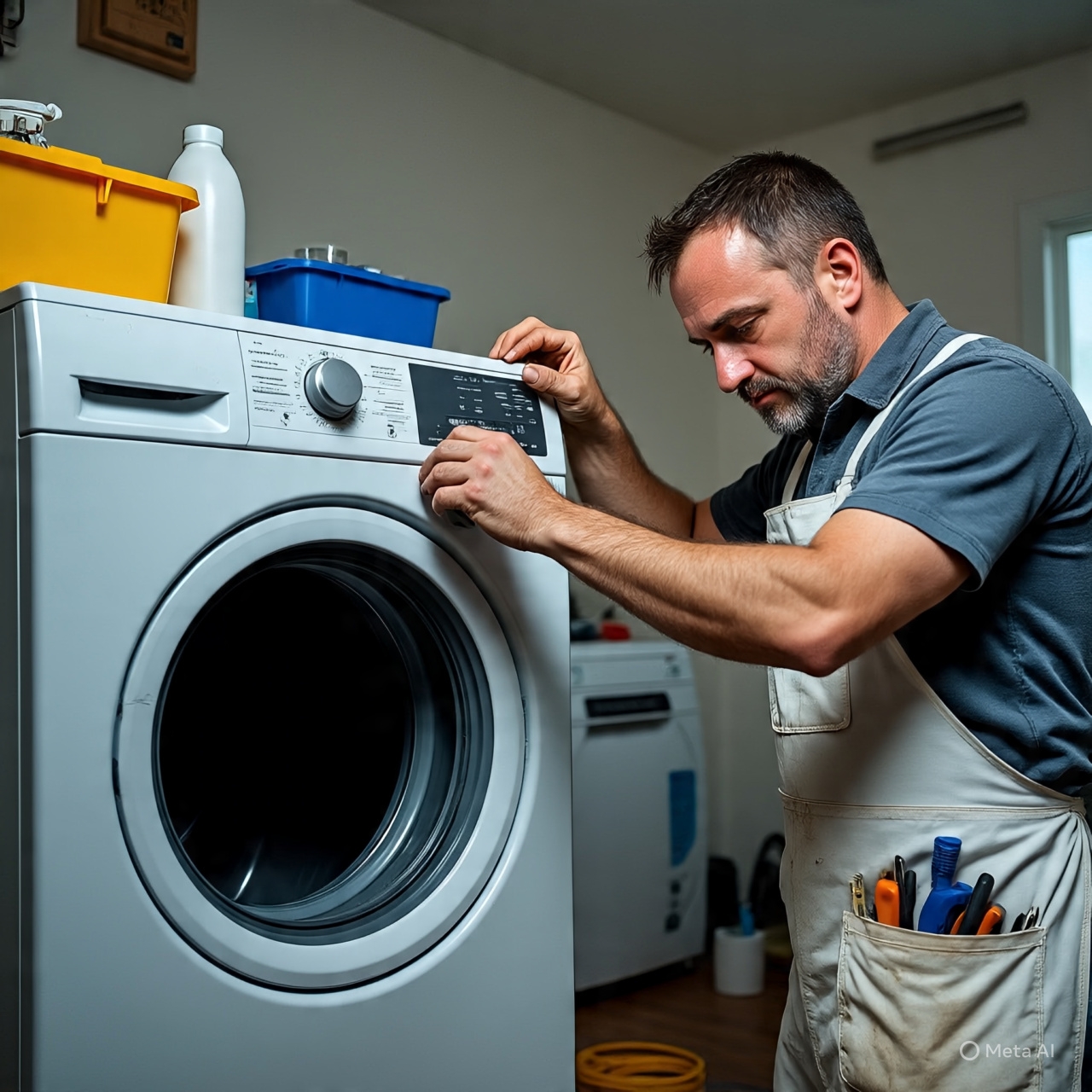A washing machine is one of the most important home appliances, making laundry much easier. But when the machine stops spinning, it can disrupt your entire routine. Many homeowners wonder about the top reasons why your washing machine won’t spin, and often the causes range from simple issues like unbalanced loads to more complex problems with the motor or belt. Knowing these reasons can help you take quick action, prevent further damage, and save money on repairs.
In this detailed guide, we will explain why a washing machine may stop spinning, what you can do to troubleshoot the problem, and when it is best to call professionals for repair.
Why the Spin Cycle is Important
The spin cycle is one of the most important parts of a washing machine. It removes excess water from clothes, making them easier to dry. Without it, clothes remain soaked and heavy, causing inconvenience and requiring extra drying time. When your machine fails to spin, it usually means there is a mechanical issue or imbalance inside the drum. Understanding why this happens is the first step toward solving the problem.
Common Reasons Why a Washing Machine Won’t Spin
Overloaded or Unbalanced Load
One of the simplest causes is an overloaded or unevenly balanced drum. If too many clothes are placed inside or if items are distributed unevenly, the machine struggles to balance itself and stops spinning to prevent damage. Rearranging the load or reducing the number of items often solves the issue.
Lid or Door Switch Problems
For safety reasons, washing machines are designed not to spin when the door or lid is open. If the lid switch or door lock is faulty, the machine may not register that the door is closed. This prevents the spin cycle from starting. A damaged or worn-out switch usually requires replacement.
Drive Belt Issues
The drive belt connects the motor to the drum. Over time, belts can become loose, frayed, or broken. If the belt is not functioning correctly, the drum will not spin. Inspecting and replacing the belt is a common solution for this issue.
Motor Malfunction
The motor powers the drum during the spin cycle. If the motor is faulty or burned out, the machine will not spin at all. Sometimes the motor produces unusual noises before failing completely, which can be an early sign of trouble.
Faulty Pump or Drainage Problems
If water cannot drain properly, the washing machine may stop spinning as a safety precaution. Clogged pumps, blocked hoses, or faulty drainage systems are often behind this issue. Clearing blockages or repairing the pump usually restores normal operation.
Signs That Indicate Bigger Problems
Not every spin problem is minor. Sometimes, repeated issues signal deeper mechanical failures. If your washing machine regularly refuses to spin despite balancing loads and checking simple fixes, it may point to a failing motor, damaged bearings, or electronic control issues. Unusual noises, burning smells, or water leaks are also warning signs that need immediate professional attention.
How to Troubleshoot a Washing Machine That Won’t Spin
Rearrange or Reduce the Load
Start by making sure the machine is not overloaded. Spread clothes evenly in the drum and try a lighter load to see if the spin cycle works again.
Inspect the Lid or Door Switch
Check whether the door closes securely. If the machine shows an error code or does not start spinning despite the door being shut, the switch may need replacement.
Check the Drive Belt
Look behind the machine to see if the belt is still attached and in good condition. If it appears loose or broken, replacing it is often the solution.
Examine the Drainage System
If water remains in the drum after the wash cycle, inspect the pump and hoses for blockages. Clearing out debris can restore proper function.
Listen for Motor Issues
If the machine hums or makes grinding noises but does not spin, the motor may be failing. At this point, calling a professional technician is recommended.
Preventing Spin Cycle Problems
Preventive care is the best way to avoid unexpected breakdowns. Regularly cleaning the filter, checking hoses, and ensuring loads are balanced all help maintain the performance of your washing machine. Avoid overloading the machine, use the recommended detergent, and schedule occasional professional maintenance.
By taking these steps, you not only prevent spin issues but also extend the life of your appliance and reduce repair costs.
When to Call a Professional
Sometimes, no matter how much troubleshooting you do, the problem persists. If your washing machine refuses to spin despite following basic checks, it is time to get expert help. Professional technicians can diagnose issues that are not visible to homeowners, such as electrical problems, motor failures, or complex drainage blockages.
At JCT Technical Services, we provide expert washing machine inspections, repairs, and maintenance to ensure your appliance works smoothly again. With skilled technicians and years of experience, we offer quick solutions that restore your machine’s efficiency.
Final Thoughts
A washing machine that does not spin can be frustrating, but understanding the top reasons why your washing machine won’t spin helps you take control of the situation. From unbalanced loads to more complex motor issues, identifying the cause is the first step toward a solution. Preventive care and timely maintenance are key to avoiding future breakdowns.
If you are facing persistent problems and need reliable support, you can always count on trusted services like Washing Machine Repair in Al Mizhar provided by JCT Technical Services. With the right professional help, your appliance can be restored quickly, saving you both time and stress.


